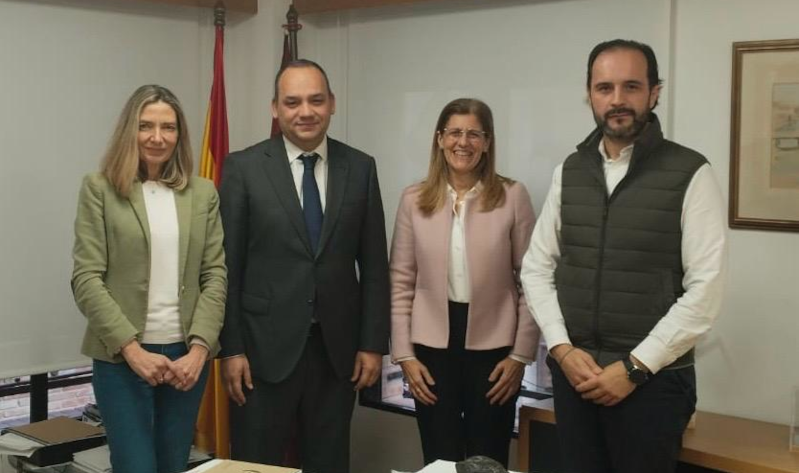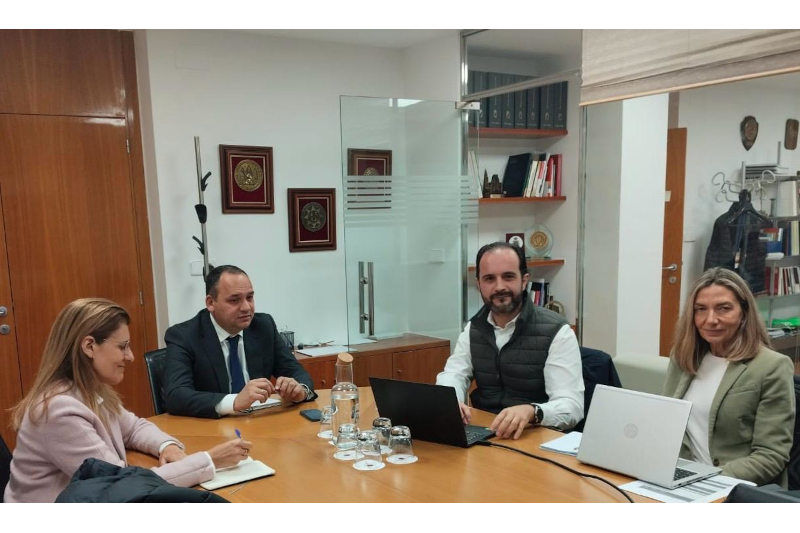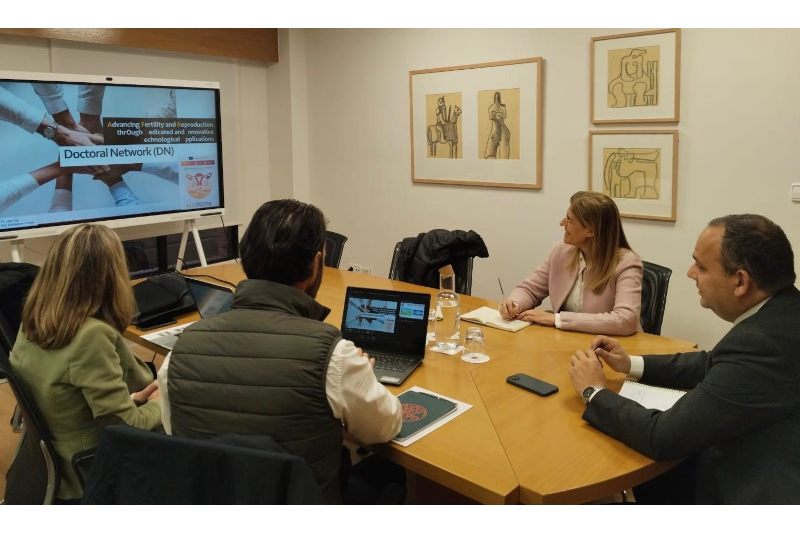UMU presents to the General Directorate of Universities of the Regional Government of Murcia the AFRODITA Project for advances in innovation in Assisted Reproductive Technologies
29-01-2025
![[#if coverImage??]
[#if coverImage?is_hash]
[#if coverImage.alt??]
${coverImage.alt}
[/#if]
[/#if]
[/#if]](
/documents/2020371/2479005/afrodita-univ-carm.jpg/fba96864-4185-f41a-80ad-6a43d5923198?version=1.0&t=1738737886979&download=true
)
Last Monday, 20th January, Professor Sebastián Cánovas Bernabé, accompanied by the Vice-Rector for Research at the University of Murcia, María Senena Corbalán García, presented to the Director General of Universities and Research of the Regional Government of Murcia (CARM), Antonio Caballero Pérez, the AFRODITA European Doctoral Network, composed of 17 institutions and coordinated by the UMU, funded with 4M€ through the Horizon Europe programme of the European Commission.
During the visit, organised within the project activities, Prof. Cánovas, principal investigator of AFRODITA, shared the progress achieved and presented the ambitious international research and training programme being developed (Joint Doctorate). This multisectoral and multidisciplinary programme involves experts from 17 institutions in Europe and the United States, including universities, research centers and leading companies in the sector, a hospital in Denmark and the largest assisted reproduction clinic group. Based on solid collaborative experience, the project will guarantee excellence in training for the 15 participating doctoral students, enhancing their opportunities for professional development in different fields.
The AFRODITA project, led by the University of Murcia, was launched in March 2024. Its main scientific objective focuses on studying the effects of assisted reproducton tecnhiques on descendants, identifying the molecular mechanisms involved as well as proposing solutions to enable significant advances in the field of fertility and reproduction.
The development of Assisted Reproductive Technologies has offered an alternative to people experiencing difficulties in conceiving naturally, and since 1978 more than 9 million babies have been born thanks to these techniques. In addition, their use has increased by a factor of 5.3 in the last two decades and this trend is expected to continue.
More information about the AFRODITA project can be found on the project's website afrodita-dn.eu



